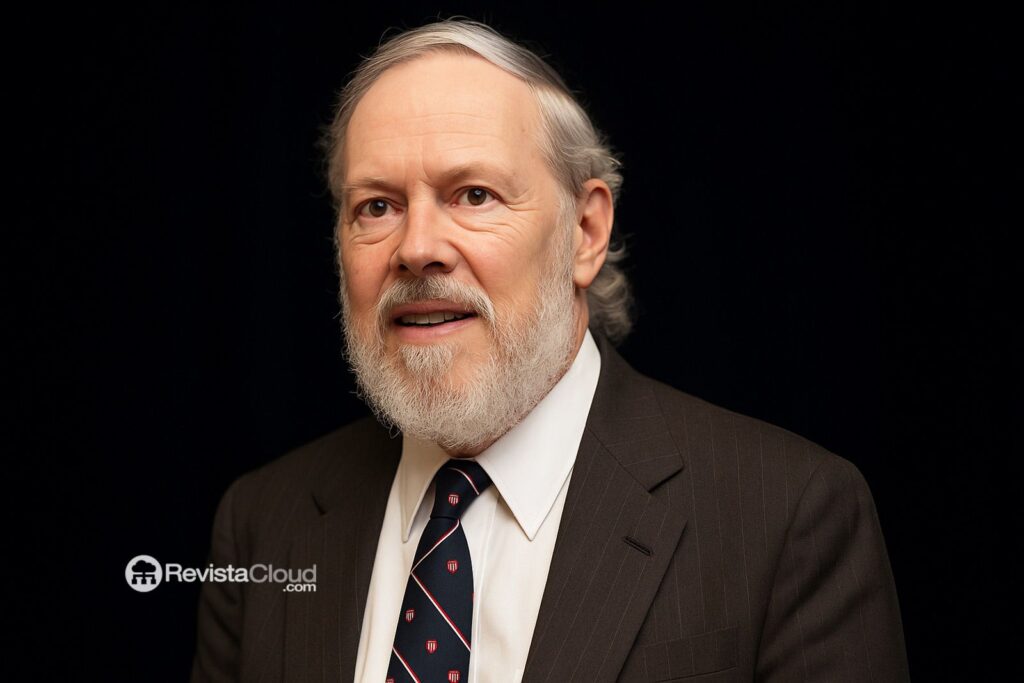A look back at the legacy of the creator of C and co-founder of Unix, whose work underpins much of today’s technology
In a world obsessed with media personalities, there are names that, without stealing headlines, changed everything. Dennis Ritchie, who passed away in October 2011 at the age of 70, was one of those quiet visionaries. His work is so deeply embedded in modern computing that it’s nearly impossible to imagine today’s systems without his foundational contributions: the C programming language and the Unix operating system.
From Bell Labs to the World
Ritchie was born in 1941 in Bronxville, New York, the son of a scientist at Bell Labs, where he would later begin his own career. After earning degrees in mathematics and applied physics from Harvard University, he joined Bell Labs in 1967. There, alongside Ken Thompson, he developed a revolutionary operating system in the late 1960s: Unix.
What started as a practical solution for DEC PDP-7 and PDP-11 computers became the cornerstone of nearly every modern operating system, from Linux to Android, including macOS and the BSD family. Unix introduced now-standard concepts like a hierarchical file system, shell scripting, and modular tool-based design—principles still used today.
The Birth of C: A Language to Rule Them All
While working on Unix, Ritchie realized the need for a more powerful and flexible language. In 1972, he created C, evolving it from Thompson’s B language. C was efficient and expressive, providing low-level hardware control with high-level abstractions. It enabled Unix to be rewritten in C, making it the first portable operating system, and thus laying the groundwork for its global spread.
C quickly became the backbone of modern computing. Its descendants — C++, Objective-C, C#, and even Java and Rust — owe much to its syntax and structure. Today, embedded systems, operating systems, compilers, browsers, and countless applications still rely on C or are built upon its foundations.
The K&R Bible
In 1978, Ritchie co-authored The C Programming Language with Brian Kernighan, a book universally known as K&R. It became more than just a guide to C—it taught generations of programmers how to think about writing clear, efficient, and elegant code. Even today, it remains a standard reference in computer science curricula worldwide.
Recognition from the Tech Community
Throughout his career, Ritchie was honored with prestigious awards, though he never sought the spotlight. In 1983, he received the Turing Award, and in 1998, the U.S. National Medal of Technology, presented by President Bill Clinton and shared with Thompson. In 2011, shortly before his passing, he was inducted into the IEEE Computer History Hall of Fame.
Known for his humility and quiet brilliance, Ritchie once said, “Unix is simple. It just takes a genius to understand its simplicity.” His calm demeanor and deep insights earned him the respect of generations of engineers and researchers.
A Quiet Farewell, a Monumental Impact
Ritchie passed away on October 8, 2011, at his home in New Jersey after a long illness. His death was largely overlooked by the media, partly because it occurred just days after the death of Steve Jobs. Yet within the software development world, the loss was deeply felt.
As Rob Pike, his colleague at Bell Labs and co-creator of the Go language, remarked:
“Dennis was more influential than anyone in the field of computing, even more than Steve Jobs. Jobs changed how people interact with technology. Ritchie changed how technology works.”
A Legacy Still Alive
Today, in 2025, over a decade later, Ritchie’s influence is stronger than ever. Every time a Linux system boots, a compiler runs, or an embedded device processes code, it echoes Ritchie’s legacy.
The rise of cloud computing, mobile systems, quantum programming, and AI—all depend on foundations laid by Unix and C. Even today’s most advanced languages and operating systems stand on the shoulders of his work.
Remembering a True Pioneer
Dennis Ritchie was never a Silicon Valley celebrity, but he was the craftsman behind the tools that shaped the modern digital world. A quiet engineer who empowered others to build the future. Today, more than ever, his contributions deserve recognition.
May his name be remembered not as a relic of the past, but for what he truly was: one of the founding fathers of the digital era.
Rest in peace, Dennis Ritchie. Your code still runs.
Source: Revista Cloud

